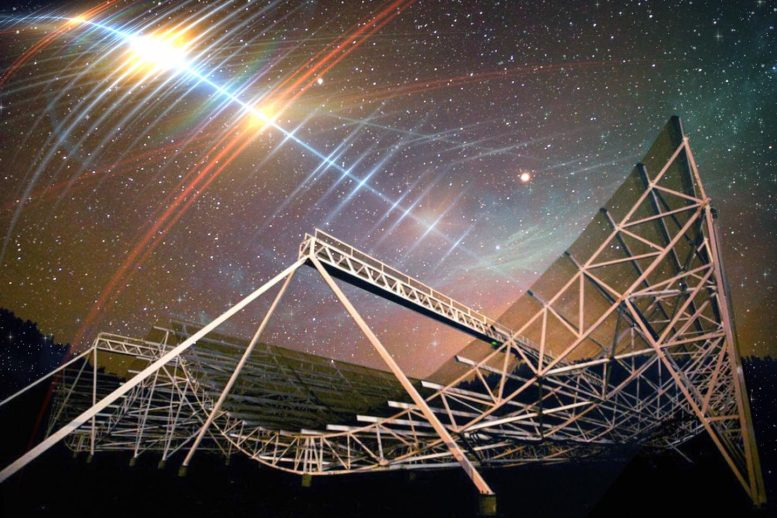
Astronomers have made a groundbreaking discovery, tracing an enigmatic signal from deep space to an ancient, “dead” galaxy. The signal, a Fast Radio Burst (FRB) labeled FRB 20240209A, was detected on Earth, reshaping how scientists view the universe’s most powerful yet fleeting events.
Fast Radio Bursts are incredibly brief but intense pulses of radio waves, lasting milliseconds but releasing as much energy as our Sun generates in a year. Despite their power, their transient nature and vast cosmic origins make them notoriously difficult to study.
FRB 20240209A marks the first time such a burst has been traced to a galaxy devoid of new star formation. Moreover, it’s also located unusually far from its associated galaxy. “This discovery is surprising,” said Vishwangi Shah, the study’s lead author. “It challenges existing theories that link FRBs to phenomena occurring in active, star-forming galaxies. To find one originating in a dead galaxy raises profound questions about how these bursts are generated.”
Shah and her team suggest the source could be in a globular cluster, a dense region filled with old, inactive stars outside the galaxy. This would make FRB 20240209A only the second FRB ever linked to a globular cluster if confirmed. The other, notably, was tied to a living galaxy.
Published in Astrophysical Journal Letters, the study emphasizes the importance of pinpointing FRB origins to understand their mysteries better. These bursts serve as cosmic probes, revealing valuable information about intergalactic matter, magnetic fields, and even the early stages of the universe.
“This discovery forces us to rethink our understanding of FRBs,” Shah added. “It shows how their environments—whether in active or lifeless galaxies—play a key role in their creation.”
The cosmos, it seems, has no shortage of surprises.
